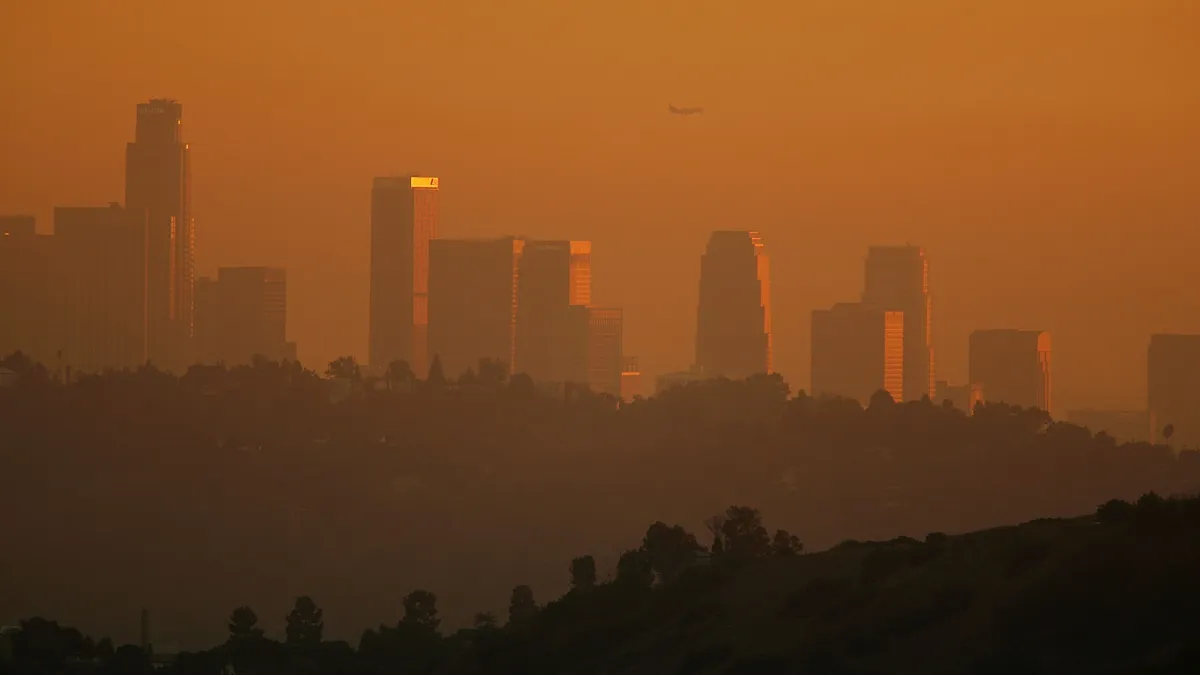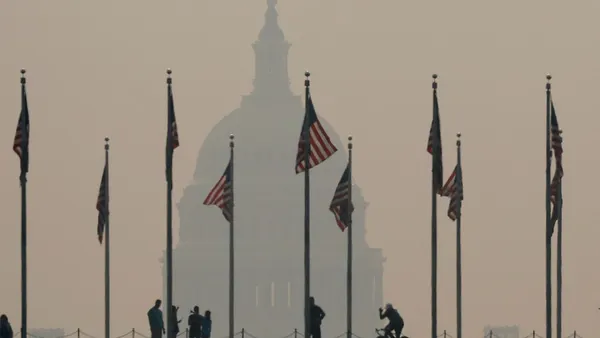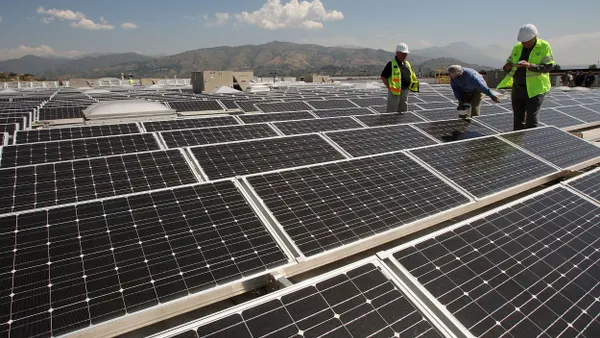Dive Brief:
- The U.S. Senate passed three joint resolutions May 22 nullifying California’s ability to set emissions standards for passenger cars, light duty vehicles and trucks that are stricter than national standards set by the U.S. Environmental Protection Agency.
- Auto and petroleum industry lobbyists targeted California’s Advanced Clean Car II regulations, adopted in 2022, which require all new passenger cars, trucks and SUVs sold in the state to be zero-emission vehicles by the 2035 model year. Federal law set in 1990 allows 17 additional states and the District of Columbia to follow California’s regulations.
- California Gov. Gavin Newsom, a Democrat, announced the state’s intention to file a lawsuit blocking the congressional resolutions, which await the signature of President Donald Trump to become law.
Dive Insight:
California’s ability to set its own vehicle emissions standards stem from the 1967 Air Quality Act, passed at a time when smog and poor air quality often permeated the Los Angeles basin. While air quality in California has improved over the years, experts fear a setback from the Senate’s action.
“Public health could potentially suffer as a consequence,” said Michael Kleeman, a professor at the University of California, Davis, Department of Civil and Environmental Engineering.
“This is, plain and simple, a vote against clean air to breathe," said Aaron Kressig, transportation electrification manager at Western Resource Advocates, in an emailed statement. He warned of potential lost days at school or work and premature deaths.
“Over 150 million people in the United States are already exposed to unhealthy levels of air pollution,” Steven Higashide, director of the Clean Transportation Program at the Union of Concerned Scientists, said in an emailed statement. “The standards are based on the best available science, and were finalized with extensive public input.”
Along with public health concerns, the debate around California’s emissions waivers include policy, auto and petroleum industry resistance and debate over states’ rights.
Republicans argue that California overstepped its prerogative.
“The California waivers rules are an improper expansion of a limited Clean Air Act authority and would endanger consumers, our economy, and our nation’s energy supply,” Republican Sen. John Thune of South Dakota said May 20 in the Senate chamber.
Industry opponents of the emission waivers cheered the Senate’s action. “The fact is these EV sales mandates were never achievable,” John Bozzella, president and CEO of the Alliance for Automotive Innovation, an auto industry lobbying group, said in a statement. Bozella noted the automakers key concern: “The problem really isn’t California. It’s the 11 states that adopted California’s rules without the same level of readiness for EV sales requirements of this magnitude.”
Petroleum industry leaders weighed in May 23 with a joint statement. “The United States Senate delivered a victory for American consumers, manufacturers, and U.S. energy security by voting to overturn the prior administration’s EPA rule authorizing California’s gas car ban and preventing its spread across our country,” said American Fuel & Petrochemical Manufacturers President and CEO Chet Thompson and American Petroleum Institute President and CEO Mike Sommers in a published statement.
California and 10 other states formed a coalition to foster cleaner and more affordable vehicles, Newsom announced May 23. Led by the U.S. Climate Alliance, a bipartisan group of 24 governors, the Affordable Clean Cars Coalition said in a news release that it would “consider next steps for our clean vehicle programs” and work to preserve the states’ authority under the Clean Air Act. Participating states include California, Colorado, Delaware, Maryland, Massachusetts, New Jersey, New Mexico, New York, Oregon, Rhode Island, and Washington.
“The fact remains that states have the legal right under the Clean Air Act to protect their residents from vehicle pollution,” Sierra Club Climate Policy Director Patrick Drupp said in an emailed statement.












